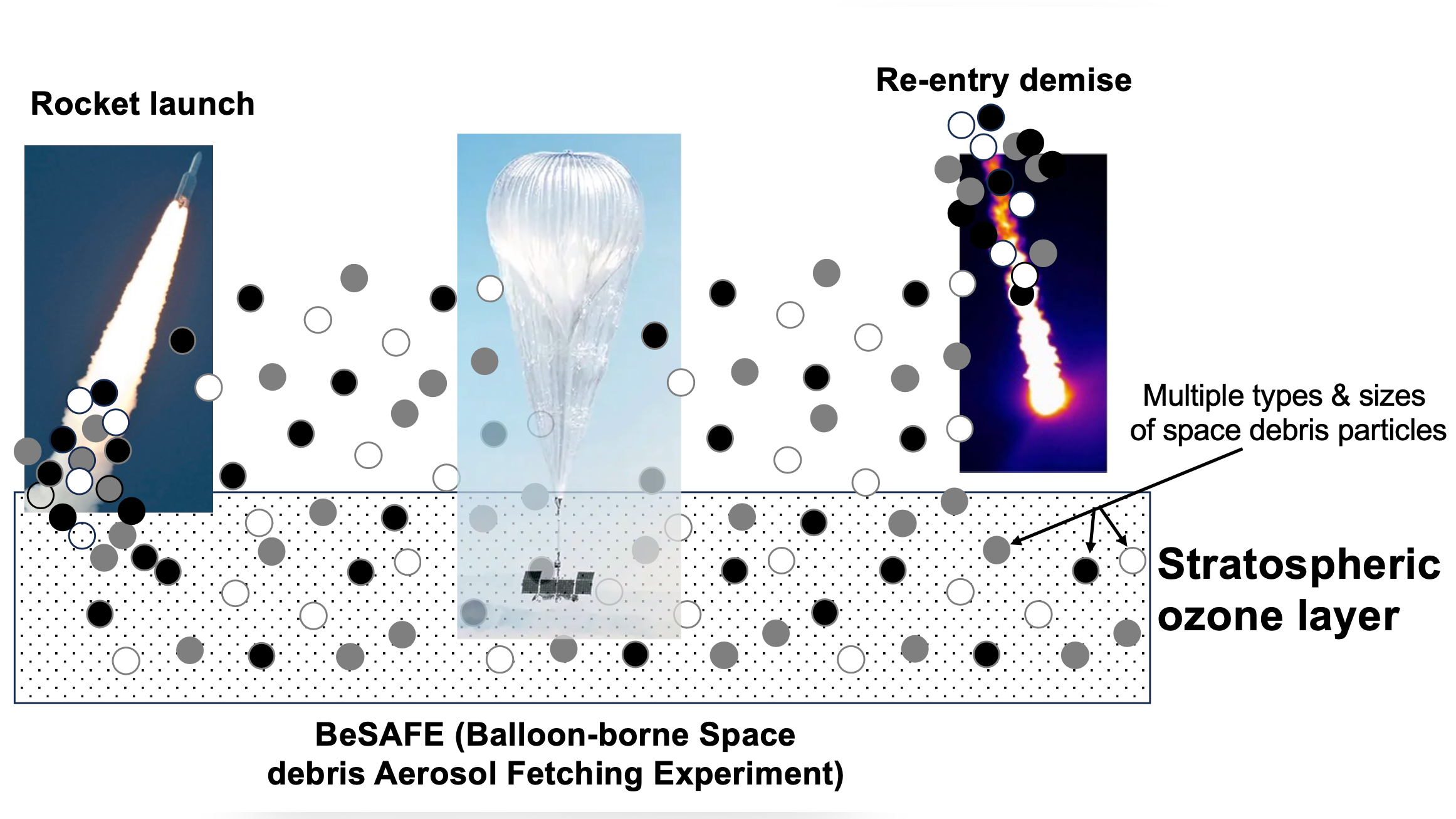Duration: 18 months
The stratosphere, extending from ~12 to 50 km above Earth, contains aerosols, which are tiny airborne particles that vary widely in size, shape, and chemical composition. These aerosols originate from natural sources (e.g., volcanic eruptions, mega-wildfires, extraterrestrial dust) and increasingly from rocket launches and the demise of space debris during reentry. While stratospheric aerosols influence ozone and climate, aerosols linked to the fast-growing human space activities remain poorly characterised and understood. Crucial information about their global distribution, composition, size, and shape is still lacking.
To address this gap, the BeSAFE project will design and develop a novel, lightweight aerosol sampler for small stratospheric balloons capable of collecting aerosols on different substrates up to ~35-40 km. The collected samples will undergo comprehensive laboratory analysis to determine their chemical composition and morphology. These data will be combined with in-flight measurements of size distributions and optical modelling (Mie-like or ray tracing) to characterise the physicochemical and optical properties of stratospheric aerosol layers. The collector is designed to meet strict requirements for mass, power use, and airflow to ensure compatibility with flying on board light balloons. The prototype and components will first be tested in stratospheric simulation chambers before being deployed during balloon field campaigns.
BeSAFE data will help identify and quantify the individual chemical components of stratospheric aerosols, notably those from space activities. The data will also aid to improve the representation of stratospheric aerosols in global ozone-climate models and in satellite retrieval models (e.g. EarthCARE models. This will facilitate cross-comparisons of ATLID data with other aerosol observations across different wavelengths, and aid in refining stratospheric aerosol classification schemes.

